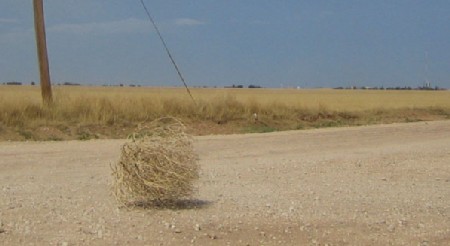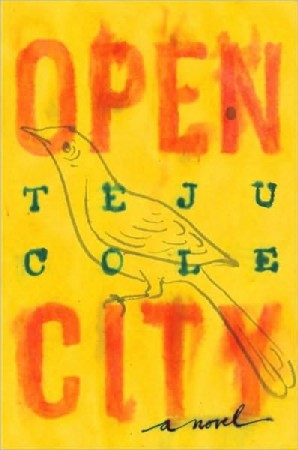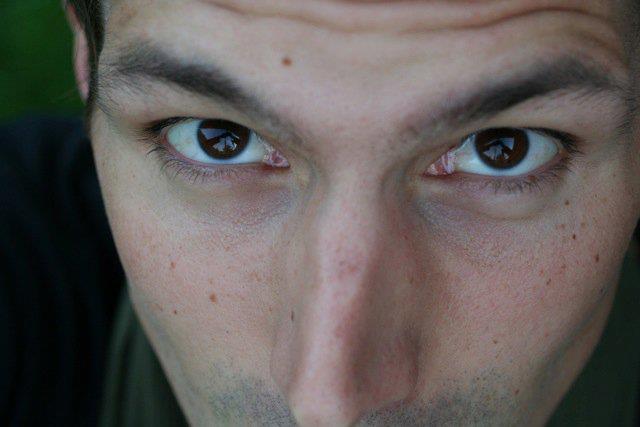Om skattningar av rasismens utsträckning
1 april 2015 | In Blogginlägg på svenska Self-indulgence | Comments?Låt säga att samhället är mer rasistiskt än vad jag tror. Låt samtidigt säga att samhället blir allt mindre rasistiskt. Om samhället är mer rasistiskt än vad jag tror, och jag får reda på att samhället blir mindre rasistiskt, kommer jag att sänka min skattning av utsträckningen av rasismen i samhället. Avståndet mellan hur rasistiskt samhället är och hur rasistiskt jag tror att det är förblir konstant. Det kan också öka, eftersom vi har en tendens att överdriva betydelsen av nyheter som bekräftar vår världsbild; i det här fallet att samhället inte är så särskilt rasistiskt.
Rasifierade har ofta en annan uppfattning av hur rasistiskt samhället är, främst eftersom de oftare konfronteras med rasismen.
Det är möjligt att vissa rasifierade, och vissa anti-rasister, tror att samhället är mer rasistiskt än vad det är. Precis som mina erfarenheter får mig att underskatta rasismens utsträckning kan deras erfarenheter (av rasism) få dem att överdriva dess utsträckning. Vissa händelser kommer räknas som rasistiska av dem som inte nödvändigtvis räknas som rasistiska av mig. Det beror på om det ingår i det mönster av händelser vars betydelse jag underskattar, och som de överskattar.
Att jag (och många andra) tror att samhället är mindre rasistiskt än det är, är del av vad som gör samhället rasistiskt. Om jag tror att samhället är mindre rasistiskt än vad det är, kommer jag också att tro att de som tror att samhället är just så rasistiskt som det är tillhör de som överdriver rasismens utsträckning. Omvänt kommer de (hypotetiska) personer som överdriver rasismens utsträckning se den som gör en korrekt bedömning som någon som underskattar dess utsträckning. När det kommer rapporter om att rasismen i samhället minskar så kommer avståndet i uppskattning av rasismens utsträckning förbli konstant om samtliga korrigerar sin uppfattning med så mycket som rapporten föreslår. Eller öka eftersom de som överskattar rasismens utsträckning underskattar rapportens betydelse, och de som underskattar rasismens utsträckning överskattar rapportens betydelse.
Ett del av problemet är att dylika rapporter främst indikerar skillnader, inte absoluta nivåer (om man ens meningsfullt kan tala om sådana). Oavsett om attitydundersökningar mäter rasism på ett rimligt sätt eller inte så kan skillnader ha betydelse för vart vi är på väg. Vad jag borde göra är att betrakta rapporten som goda nyheter, men ändå ändra min uppfattning om rasismens utsträckning åt motsatt håll. Det är värre än vad jag trodde, och rapporten visar inte att det har blivit så mycket bättre som jag tror.
Det finns en rad skäl för att underskatta och överskatta rasismens utsträckning. Det är här erfarenheter blir viktiga. Sannolikheten att jag underskattar rasismens utsträckning är troligen högre än att de som blir utsatta för rasism överskattar dess utsträckning. Det är samtidigt relevant för de som utsätts att jag som inte utsätts förstår i vilken utsträckning de utsätts. Pga hur vi förutsebart reagerar på rapporter om att saker blir bättre ligger det i deras (legitima) intresse att underskatta betydelsen av dessa rapporter. Samtidigt ligger det naturligtvis i deras intresse att det blir bättre. Men sannolikheten att det blir bättre kanske sjunker om sådana som jag underskattar hur illa det är.
Det är dessutom så att pga rasismens utsträckning så är de som underskattar den sannolikt oftare i maktposition. Deras (vår) skattning av rasismens utsträckning har därför större betydelse för vilka åtgärder som kommer genomföras. De risker som är befattade med underskattning tycks då större än de som är befattade med överskattning, även om de senare vore vanligt förekommande.
On caricatures, freedom and the nature of assholes
13 januari 2015 | In Comedy Emotion theory Ethics Hate Crime media Moral philosophy Philosophy of Law politics Psychology Psychopathy Self-indulgence Uncategorized | Comments?I have to admit, I’m not overly fond of caricatures. Never have been. I guess sometimes they manage, just like a good metaphor does, to capture something important about its object that was not as obvious before. The thing that a caricature brings out about the object is usually intended to render it ridiculous. Most things are partly ridiculous, of course, it’s almost never a useless way of viewing a thing. But it becomes particularly useful if the thing, or person, or group, is in power, is pompous, is revered to an unreasonable extent. It becomes less so, even harmful, if the thing or person, or group, is already despised, disenfranchised, already treated as ridiculous.
The reason why I’m not overly fond of caricatures, or metaphors for that matter, is that they rely on putting emphasis on certain things at the expense of other things, and the result, the ”translation”, as it were, depends on whether that serves to correct the received view in order to reflect the actual importance of those things. Caricatures have a history of ridiculing power, and that history is well-rehearsed these days. But they also have a history of serving power. Of dehumanizing people it deems of less importance, which makes those people even easier to disregard, or even to kill.
There is an argument that says that we have freedom of speech in order to protect precisely the sort of statements that we do not like. This is spurious. It may be true that the extent of freedom of speech can be measured by exactly how offensive, vitriolic, hateful, debasing, threatening expressions that it allows, but it hardly seems to be the point of having freedom of speech. Some people will say that freedom is a value in itself. Others, like the more often quoted than read J.S. Mill, say that freedom of speech is an instrumental value, which serves a function. And it can be limited when it fails to serve that value. On this account, we can say that freedom of speech is a matter of costs and benefits. The offensive can occasionally be a benefit, the hateful very rarely is, but we may want to preserve the right to make hateful assertions because the total value of relatively unregulated speech is positive. The benefits may outweigh the costs. (It should be noted that this analysis could, and, I believe, should, adjust for fairness. If the costs and benefits are unfairly distributed so that the worst off bears the greatest burden, the cost may be unacceptable even if it is outweighed in absolute terms). Hate speech laws tend to draw a line between the offensive (which is allowed) and the hateful (which is not), but some legal scholars and a lot of libertarians believe this distinction fail to track anything of moral importance.
Now. In moral philosophy, the notion of an asshole is quickly turning into a technical notion of considerable use. An asshole is a person that does not infringe on other peoples rights, but does everything he/she can to reap the benefits for him/herself, and nothing to help others. It is the kind of person that uses freedom of speech to say all the worst things he/she is allowed to, while contributing nothing to a worthwhile discussion. The behavior of such people tend to be on the cost side in the cost/benefit analysis of a right. Assholes are on the cost side, and when they become too many, the instrumental value of certain freedoms decreases. At the same time, the fact that we tolerate them (even encourage them in certain contexts) may be a testament to the strength of our society, our resilience. Assholes also serve the considerable function of demonstrating the gaps in our systems and institutions.
I’m going somewhere with this. I have not made myself familiar with the works of Charlie Hebdo. I don’t know french, and I’m not sufficiently familiar with the cultural and political context. If I understand things correctly, their tendency has been to make fun (if that is the right word) of power and pompousness in all it’s guises. It certainly is no straightforward instrument of power. But equal treatment does not amount to equal effects, especially when the people and groups treated have different social standings to begin with. Some of their work may render things ridiculous that we all benefit by viewing in that light. Some of it may serve to dehumanize and ridicule people that are already being discriminated against, whose social standing in the context is low. The latter is an unmitigated cost, and it is the work of assholes, in the technical sense described above. Caricaturists will often tend towards asshole-hood. And it is possible that they should, that it is for the good that there are people, and publications, like that. But it would probably be unbearable if we were all like that. And while the extent of free speech may be measured by the worst things it allows, the value of it must be measured by the best things it allows that would otherwise have been banned.
The When Law and Hate Collide Radio Documentary
25 november 2013 | In academia Crime Hate Crime media Philosophy of Law Self-indulgence | Comments?At the fourth meeting of the research project ”When Law and Hate Collide”, which took place in Brussels in 2012, we recorded a radio documentary. It features the project members Michael Salter, Kim McGuire, Christian Munthe, David Brax (that’s me), Caroline Bonnes and Michael Fingerle along with noted experts Paul Iganski, Henri Nichols of the FRA, Paul Gianassi from the UK Ministry for Justice, Joanna Perry from OSCE-ODIHR, Jackie Driver from the Equality and Human Rights Commission and UCLAN’s Bogusia Puchalska.
I identity six types of justifications for penalty enhancements at 10:40 and the possible criteria for inclusion as a protected group at 22:47
And here it is:
A philosophical take on hate crime
6 september 2013 | In academia Hate Crime Self-indulgence | Comments?Hi. Below you’ll find a short interview with me about (wait for it) the philosophy of hate crime. It’s in swedish and it’s made by the really quite admirable crew at fjardeuppgiften.se, a website that makes short interviews with scientists of all shapes and sizes and then distribute the interviews without charging.
About the content: basically, I reiterate some claims familiar to (the fiction known as) readers of this blog: that there are a number of hate crime concepts, that the issue of justification of punishment enhancement is not precisely settled, and that we still lack a good theory about the relation between everyday xenophobia and hate crimes, and thus of why and when these crimes occur.
Hello, new reader
16 april 2013 | In academia blogg-launch Happiness research Hedonism media Psychology Self-indulgence | Comments?Hello! If you’ve just found your way here, odds are that you did so because of this article http://www.dn.se/insidan/insidan-hem/for-att-lyckas-med-lyckan-far-man-inte-vara-for-krasen
Feel free to look around. The last two years of posts deal almost exclusively with hate crime. If you want something more substantial on that topic, you may start off with this video
And maybe take a look at this rather hefty text, co-authored with Christian Munthe:
http://www.academia.edu/2550264/The_Philosophy_of_Hate_Crime_Anthology_Part_I_Introduction_to_the_Philosophy_of_Hate_Crime
If you are more interested in my work on hedonism, here’s the full text of my dissertation ”Hedonism as the Explanation of Value”:
http://lup.lub.lu.se/luur/download?func=downloadFile&recordOId=1455027&fileOId=1466315
Enjoy!
The Hate Crime Concept(s)
11 september 2012 | In academia Hate Crime media Moral philosophy Self-indulgence TV | 1 CommentA few months ago, the German partner of the ”When Law and Hate Collide” project hosted a splendid symposium on hate crime.
You can find all the presentations on youtube.
My presentation on the Hate Crime Concept(s) (the spoiler is in the title: there might be several such concepts) is here.
The slides, if you find that you need to look at something a little less distracting than me moving about nervously, are here: The Hate Crime Concept(s)
Racists as victims of hate crime: the vulnerability account
15 mars 2012 | In Crime Hate Crime politics Self-indulgence | Comments?Victim-centered accounts of hate crime
One of the main issues debated when it comes to hate crime is about its victim: Who are the victims of hate crimes? This can be taken as an empirical question about the most common victims of hate motivated attacks – a very relevant question that can and probably should drive policy measures – or it can be taken as a conceptual question regarding what counts as a hate crime. There is a widespread belief, for instance, that only minorities can be the victim of a hate crime. But in most legislations being targeted because of religion, for instance, includes being targeted for belonging to the majority religion. It’s just much less common.
Very few countries have an open-ended scope for victim, suggesting that it’s not merely the ”hate” or ”bias” aspect that makes these crimes of special interest. The sort of group that you hate must have some particular feature or history, that makes targeting them a particularly bad idea.
Perception matters
It is, in fact, not the actual group-membership of the victim that counts, but what group the perpetrator believe the victim belongs to. I’m not Jewish, but because of my name and some superficial features, one may perhaps be led to believe that I am, and if one attacks me because of this belief and bias toward Jewish people, I would be the victim of an anti-semitic hate crime. This, of course, makes sense if hate crime focuses on culpability of perpetrator: for all he/she knew, I’m Jewish and attacking me would tend to have the intended consequences of harming me and my group. In fact, the targeted group may still suffer, if they get to know that I was targeted because (mistakenly) believed to belong to them. One notable feature of this arrangement, however, is that I, presumably, would not suffer more because mistakenly being held to be Jewish than if I had been the target of some otherwise motivated crime. So harm-wise, it might be preferable that I be the victim of an anti-semitic attack than that an actual Jewish person is. But, of course, if targeted in such an attack, I would probably not have the typical supporting back-up of the Jewish community, so perhaps I would, in a sense, be worse off. Oh well.
The motive
There’s one further aspect: It’s not enough that the perpetrator believes that the victim belongs to a certain group, that must also be the reason why that victim was chosen. This is of considerable importance, as we shall see below.
Vulnerability/disadvantage
Hate crime legislation was developed in support of certain groups that were very often targeted by bias-motivated crime. Certain ethnic and religious groups and certain groups based on sexual preference were, and still are suffering more than their share of bias motivated attacks, and something had to be done about it. Several things, in fact. But there are two rationales lurking here: 1) These people are being targeted more often, and we need to create incentive for this to decrease. And 2) These people suffer more as a result of being targeted than do other people. This is the ”hate crimes hurt more” account, which I’ve written about before. Both these accounts make room for limiting the ”hate crime” category to certain groups: those that are hurt more by being targeted. This is in line with the harm principle – punishing perpetrators in proportion to the harm they cause, or intend, or risk, to cause.
We may speculate that 2) is true because 1) is true, but let’s focus on 2). This suggest that certain groups are more vulnerable to harm. They may be such, in a sense developed by Wolff and De-Shalit, that their disadvantages cluster: They are not only more likely to be victims of crimes, but also less likely to secure jobs, more likely to be discriminated against, having less access to certain social goods etc. Targeting the vulnerable seems to add to your culpability (even if you could defend yourself by saying that they were already at such an disadvantage, that another attack wouldn’t make things that much worse). Let’s grant this, for the moment, and say that hate crime legislation is in place to protect groups that are at a disadvantage. Minorities often are, but not all minorities. The very rich, for instance, is a minority, but not a vulnerable one. Targeting them would not, on this account, count as a hate crime.
Vulnerability and motive
Now we come to a tricky issue: we’ve said that what’s important in hate crime is 1) Perception of the victims group and 2) Vulnerability of that group and 3) Hate/bias toward that group. If 3) is essential to hate crime, and this should fit into the ”vulnerability-as-prone-to-harm” account, we must show that targeting a group because of membership is worse than targeting them for some other reason. I.e. prone to cause more harm. We are currently not enhancing punishment just for knowingly attacking someone belonging to one of these group, so this seems to be an essential ingredient. The argument is usually that if I’m targeted because of group-membership, that means I and my group live under a constant threat of being targeted again. I won’t evaluate this claim here, but grant it and see what follows. For if this was a tricky issue, the following is even worse:
Vulnerability as perceived by victim
Let’s grant that for most societies, the majority is not at a disadvantage (this may be a conceptual claim, or an empirical one and as such is probably challenged by the 99% movement). So if I’m targeted because of belonging to that group, I’m not suffering any additional harm, and the perpetrator would not have deserved punishment enhancement. Despite fulfilling the other criteria, the ”hate” part, I’m not the victim of a hate crime. I don’t believe muslims, say, are a threat. I don’t think they are taking over the country I live in and intend to bring in Sharia law. But I know that some people do. Most of them are probably just paranoid and misinformed, a lot of them seem to be clear cut racists. These people think that they are under a real threat from muslims. So what happens when one of them is attacked by a muslim because of majority group-membership? Presumably perceived vulnerability matters to the harm experienced by a victim. So, again, attacking me for belonging to the majority would seem to be not as bad as attacking a racist for that same reason. The same sort of insecurity would tend to spread, at least in the racist community, and the harm would be, and should be foreseen to be, considerable.
Should this count as a hate crime? I’m guessing most people would say no. I tend to say ”no”. But this means the vulnerability account needs to be amended in some way. Perhaps the answer is that the attacker only thinks that the victim belongs to the majority, and that at least the majority of the majority does not perceive themselves to be threatened in this way. It’s only if they target the ”vulnerable” group of the majority that they are culpable. But then, of course, we’ve said that they are not targeted because they belong to the vulnerable subgroup of the majority.
I’ve not considered a case where racists are targeted because they are racists, partly because I don’t think many of them perceive themselves as such. But let’s say that a group is targeted because of their racists beliefs, and that the vulnerability-related harm ensues, for the reasons mentioned. Would this count as a hate crime? If you suggests ”no”, there is a further victim based account, and I will deal with it in another post.
Teaser
One reason why hate-fuelled crime against racists would not count as a hate crime might be that their vulnerability is based on mistaken beliefs. But note that the same would seem to hold for at the very least most of religious groups as well. But perhaps it is because victims of hate crimes are supposed to be innocent. I.e. in no way deserving of hate? There is something morally wrong with being a racist, the same moral wrong that other hate crime concepts take as their justification. And hating the immoral might not add to culpability. In fact, some would say that it would be a mitigating, rather than aggravating circumstance. I’ll return to this in a later post.
Resolution
2 januari 2012 | In Psychology Self-indulgence | 1 Comment
As far as New Year Resolutions go, this is admittedly a rather weak one, but here goes: I solemnly swear to at least try to lighten this blog up a bit, by posting every now and then on something other than hate crime.
It wont be the next one: that will be on hate crime and the notion of punishing a cause and you will read it and like it and perhaps even beg me to reverse my resolution because you are so very, very fickle, are you not, reader? Reader?
 Oh. Right.
Oh. Right.
The christmas day hate broadcast
23 december 2011 | In Hate Crime media Moral philosophy Self-indulgence | Comments?’this the season and all that and whoever is on the non-news part of your state-subsidised radio or television is instantly promoted to the status of National Treasure. And about bloody time.
To be serious for just a minute, though (even though I don’t really want to): on sunday the 25th, swedish radio P1 will broadcast an episode of the soaringly popular program Filosofiska Rummet. This episode features yours truly in conversation with the magnificient police officer and educator Jeanette Larsson and professor of Criminal Law, Per-Ole Träskman. The topic is hate crime, it’s nature and moral status, and the point and justification of hate crime legislation. I may sound like a sceptic on the show, but that’s mostly a group-dynamics kind of thing.
The Highly Infrequent Review of Books: Open City, by Teju Cole
5 november 2011 | In Books Self-indulgence | Comments? Teju Cole get’s me. The big obvious differences – I’ve no relation to Nigeria, as far as I know – fades in comparison to the big astonishing similarities – I think like that, walk like that, listen, read, observe like that. And these things, I believe, is what matters here. Of course I do. It’s impossible for me to keep any sort of critical distance to Open City – the effortless elegance of the prose, helps, naturally – I’d blurb it if someone would let me. But the most notable lack of effort is that with which one (or I) submerge into it. There is almost no distance to cover – strumming my not-really-pain with his fingers, typing my life with his words. I would admire him, but modesty (yeah, right) forbids it.
Teju Cole get’s me. The big obvious differences – I’ve no relation to Nigeria, as far as I know – fades in comparison to the big astonishing similarities – I think like that, walk like that, listen, read, observe like that. And these things, I believe, is what matters here. Of course I do. It’s impossible for me to keep any sort of critical distance to Open City – the effortless elegance of the prose, helps, naturally – I’d blurb it if someone would let me. But the most notable lack of effort is that with which one (or I) submerge into it. There is almost no distance to cover – strumming my not-really-pain with his fingers, typing my life with his words. I would admire him, but modesty (yeah, right) forbids it.
This isn’t really a review, is it? I guess not. You may be sick and tired of Big City Novels where Clever but Somehow Aloof Young Man walks about making Clever and Profound Observations. And that’s mainly what ”Open City” is. But that’s only the format. You may be sick and tired of 60- 150 White People playing Notated Music by Dead White Men on Old-fashioned Instruments, too, yet you shouldn’t really rule out Symphonies as something that might be worthwhile, should you?


